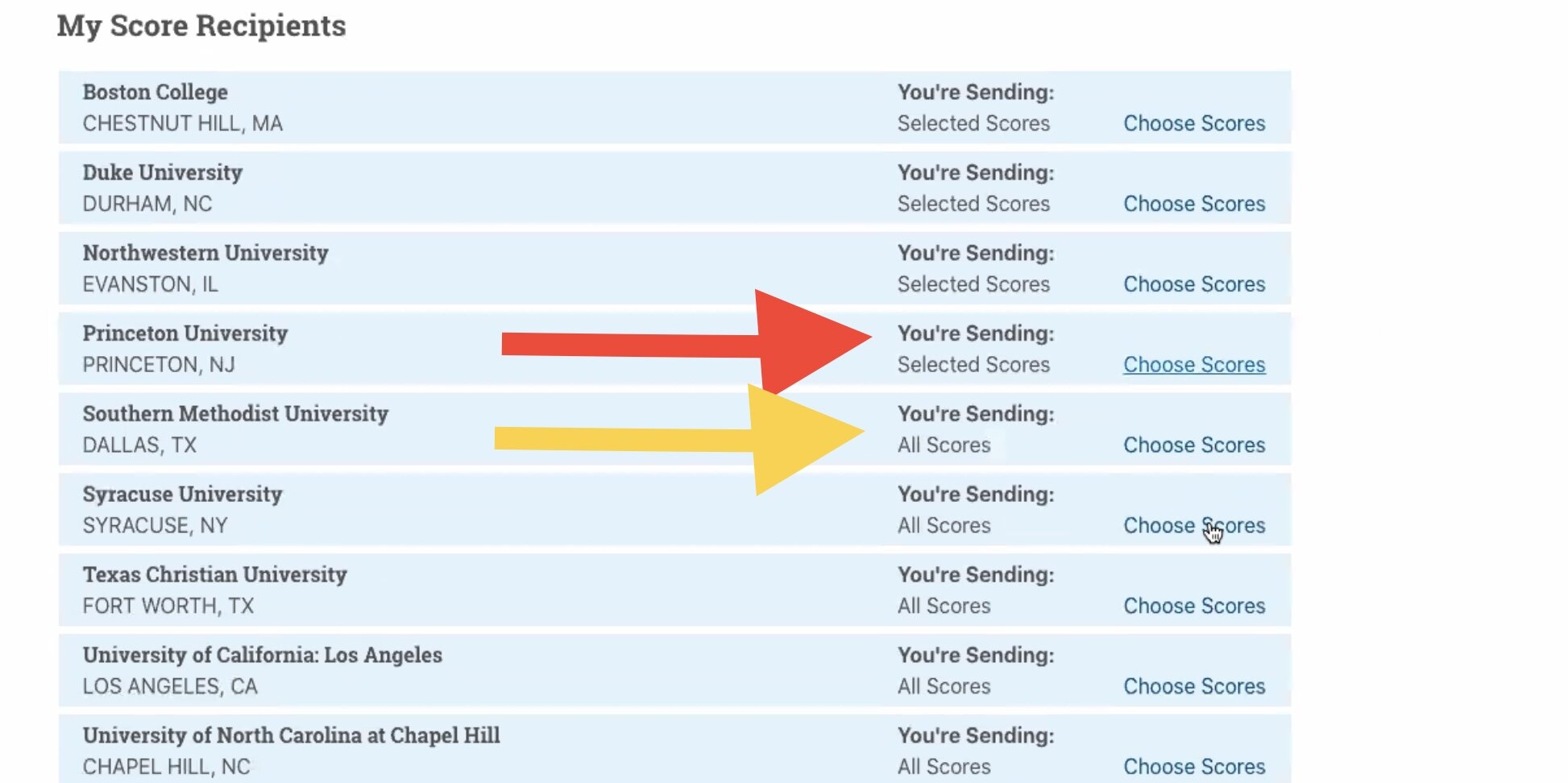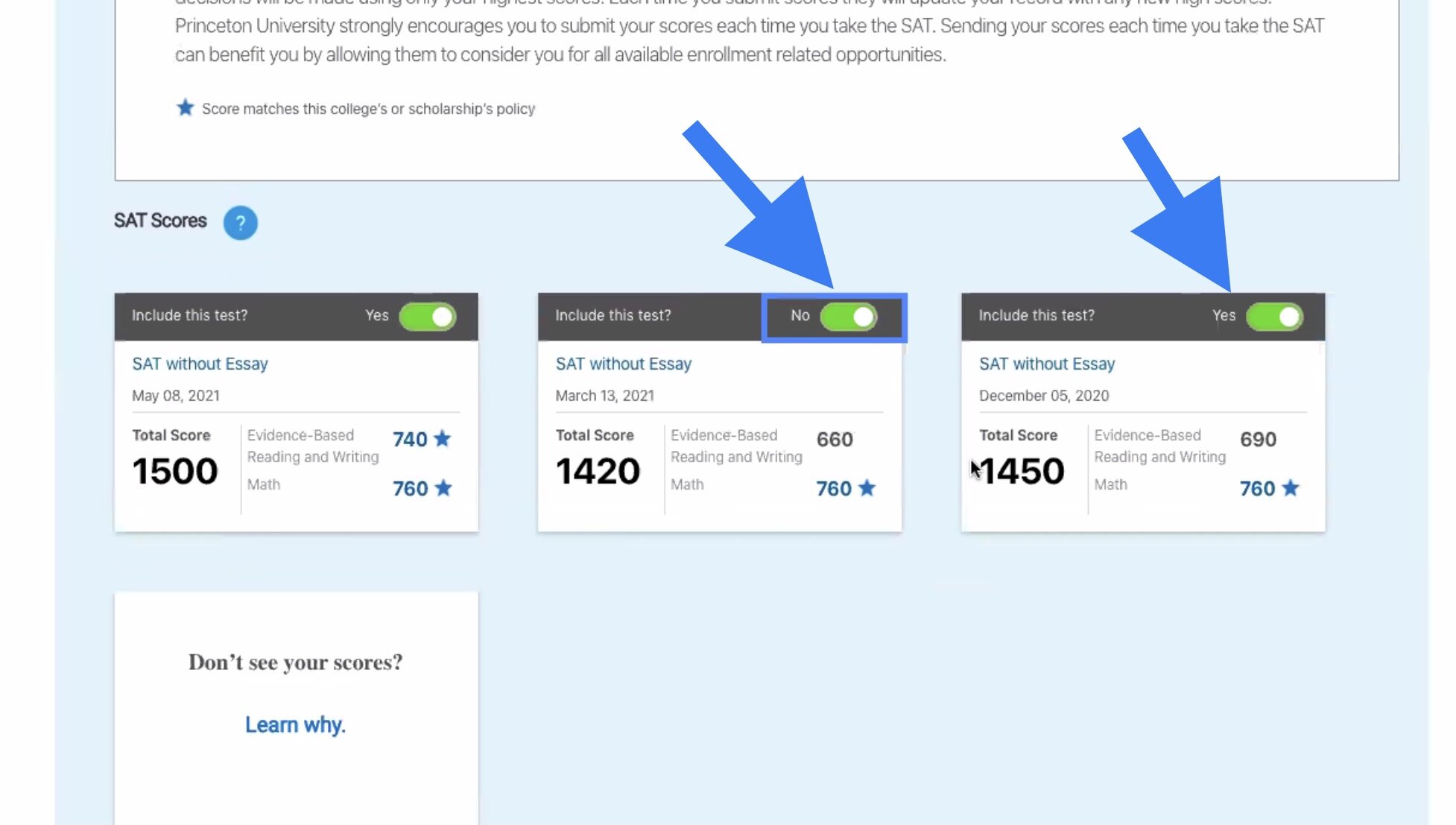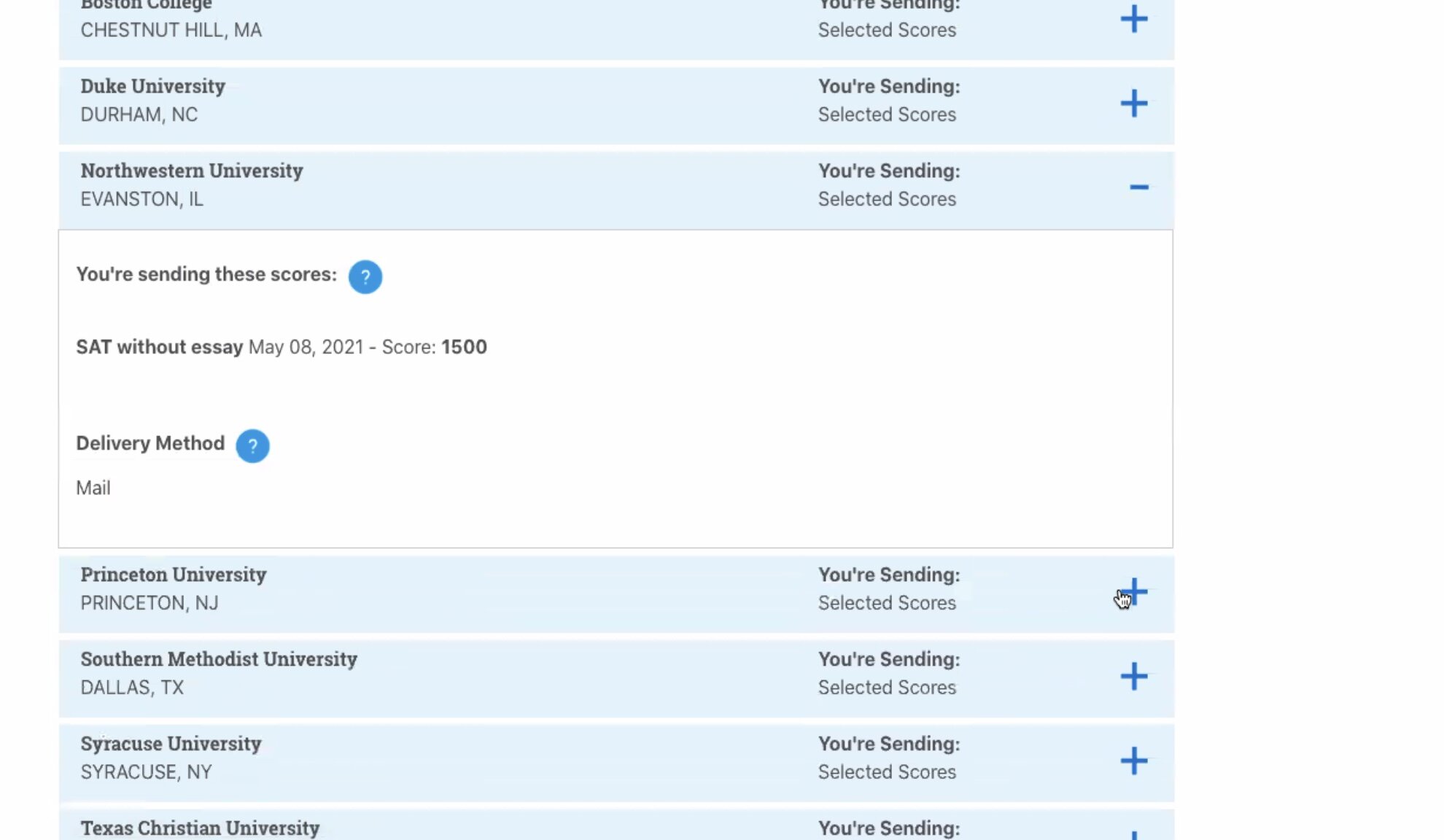Hope everyone is staying cool in this heat!
While we definitely want you to get outside and enjoy the summer, this extreme weather is the perfect excuse to spend some extra time indoors working on college applications. Rising seniors, this is a great window to book a few more essay coaching meetings and make meaningful progress before things cool down.
In the meantime, here’s what’s been happening in the world of higher education:
BIGGEST COLLEGE-RELATED NEWS OF THE WEEK
June SAT Scores Are In!
The moment of truth has arrived: June 7 SAT scores are now live for most students. Head over to your College Board account to check your results. Fingers crossed for great news! If you're still on the fence about retesting, go ahead and register now to secure your preferred test center. You can always cancel later if needed.
🌟 DCCC students: Don’t forget to send us a screenshot of your scores so we can keep your file up to date. Use our multi-purpose submission form and follow this path: DCCC Forms and Information → Test Scores, Report Cards, or Transcripts.
Tenure Under Fire
The tenure system is now under attack! Never heard the term? Tenure refers to the protections granted to some professors to prevent them from being fired for presenting challenging or controversial ideas. At least 11 states are now proposing to revise or eliminate this system, arguing that it leads to decreased faculty productivity and wastes taxpayer dollars.
Suggestions include more frequent performance reviews and allowing dismissal for those who fail to meet certain milestones. While some of these proposals are framed as economic, states like Texas have made it clear their goals also include limiting instruction on topics like critical race theory. Although faculty are the most directly affected, these changes could impact the academic climate and educational depth at the colleges you’re considering.
Birthright Israel Participants Evacuating Amid Conflict
As missile strikes continue following the recent escalation between Israel and Iran, Birthright Israel has evacuated thousands of American participants from the region. Birthright is a well-known program that offers free 10-day trips to Israel for Jewish young adults, many of whom are visiting the country for the first time. The program is designed to strengthen cultural identity and connection, with itineraries that include historical tours, educational activities, and exposure to daily life in Israel.
Last week, as Iranian missiles broke through Israeli defenses, approximately 1,500 Birthright participants were evacuated. Others remain in shelters or are still awaiting transport home. Reactions among families have varied; some have expressed gratitude for the swift evacuations and others are struggling with disappointment over shortened trips.
If you're considering international programs during or after college, this situation is a reminder to stay informed about global events and make sure the programs you're participating in have strong emergency plans in place. And if you’re curious about Birthright Israel, you can learn more here! It’s a really great program.
Deeper Budget Cuts at Major Research Schools
As federal support for higher education continues to decline, colleges and universities are bracing for deeper cuts, including potential staffing reductions. According to Forbes, six major research universities reported significant financial losses this past week:
Temple University
Cornell University
University of Kansas
University of Minnesota
University of Maryland
University of Nebraska
These budget constraints could affect research funding, campus resources, and tuition, which may rise to compensate for lost revenue. While we don’t recommend ruling out top research universities or Ivy League institutions, it’s definitely smart to monitor how these changes could influence academic offerings and student life over the next few years.
Higher Ed Fights Back, Suing Over DOD Cuts
In response to recent federal budget cuts, several leading universities are taking legal action to protect their research funding and academic autonomy. A judge ruled on Friday that the National Science Foundation cannot proceed with additional proposed cuts following lawsuits from MIT and Princeton. Separately, 12 colleges, including nearby UMD and Johns Hopkins, have sued the Department of Defense to prevent further reductions that would significantly impact university research.
While the outlook may feel uncertain, these legal actions show that colleges are actively fighting to protect their programs. And remember: one disappointing headline doesn’t mean a school is no longer a good fit. it's still too early to predict long-term effects! What matters is staying informed, which is why we’ll keep sharing the latest here on our blog.
BEST ARTICLES OF THE WEEK
It’s hot out there — and not just outside. The post-college job market is heating up in all the wrong ways. According to the Wall Street Journal, unemployment among recent grads (ages 20–24) is sitting around 6.6%, the highest it’s been in a decade, not counting the pandemic years. Even tougher? Employers aren’t in a rush to hire. Entry-level roles are increasingly going to candidates with experience, and industries that once snapped up new grads — like tech — are now flooded with applicants, all competing with each other and, yes, with AI.
Some fields are holding steady. Healthcare and medical-related careers, for example, continue to offer stability thanks to long-term demand. But students entering computer science programs with dreams of working at a major tech company may need a backup plan. The competition is fierce, and companies are moving cautiously.
For students without a college degree, the picture is even bleaker — unemployment is around 14.5% — so college is still a worthwhile investment. But it may be time to rethink what you’re investing in. Choosing a major that aligns with current and future job openings is more important than ever.
Take air traffic control, for instance. It’s probably not a career you’ve spent much time thinking about, but the field is facing a major shortage. The Federal Aviation Administration is partnering with colleges to fast-track training, and students are discovering the role has a lot to offer: problem-solving, creativity, and no sitting behind a desk all day. One student told NPR that it was exactly what she was looking for — she just didn’t know it existed. If you're still figuring out your path, use this summer to look beyond the obvious. Ask yourself: how could I apply my strengths in fields I haven’t considered?
Of course, big decisions about college and careers require clarity — and that’s hard to come by if you (or your teen) are glued to a screen all day. And yes, we know the conversation about screentime can feel overdone, but new research is giving it sharper edges. A long-term study recently found that teens who show signs of actual screen addiction — meaning they use their phones or video games to escape reality and can’t stop thinking about them even when logged off — are at a significantly higher risk of suicidal thoughts and behaviors.
But it’s not about screen time alone. Just because your teen is on their phone a lot doesn’t mean they’re in danger. The key takeaway is to look at why they’re using it. If it’s about connection, fun, or relaxation, that’s one thing. If it’s a coping mechanism for avoiding the real world, that’s something to pay closer attention to.
Luckily, summer offers a perfect opportunity to reset. One of the most effective — and surprisingly popular — ways to get teens off their phones? Sleepaway camp. Many programs require campers to hand over their devices, and the kids aren’t just surviving — they’re thriving. According to The Washington Post, teens at one Maine camp were more talkative, more creative, better rested, and even said they could think more clearly after just a few days without screens. One camper put it simply: “I can remember things at camp. I can’t remember things at home.”
And as a bonus? We’ve seen some fantastic college essays come from camp experiences. Whether it’s pushing through a tough hike, learning to lead a cabin, or just finding confidence away from home, those unplugged moments often turn into the kind of personal stories that admissions officers love to read.
So whether you’re thinking about majors, jobs, mental health, or just surviving the heat — this summer might be the right time to slow down, unplug, and look at the bigger picture. There's a lot out there to explore. You just might need to step away from the screen to find it!
OFFICE HAPPENINGS
As students are finishing up their Common App essays with our DCCC coaches, it looks like colleges are finally starting to release their 2025-2026 supplemental essay prompts. We’re always thrilled to see them showing up online this early so we can help our clients stay a step ahead of the process. So far we’ve seen prompts from Boston College, University of Miami, Georgetown, University of Georgia, and Purdue.
With these prompts already trickling in, it’s all the more reason to book appointments soon to try and finish up those generic supplemental essays. Once those are out the way, it’ll be so much easier and smoother to respond to the specific questions from your top schools.
Try to stay cool, everyone!

























